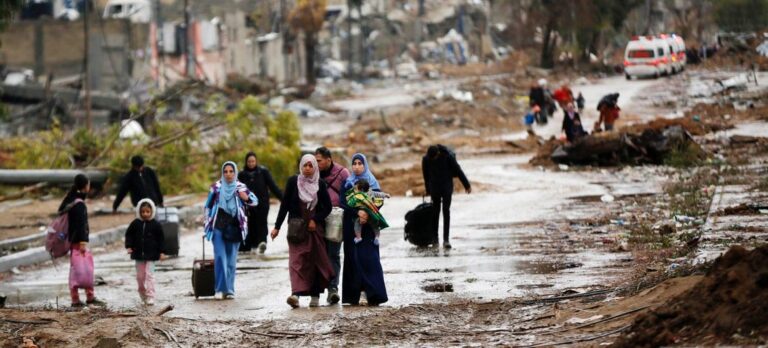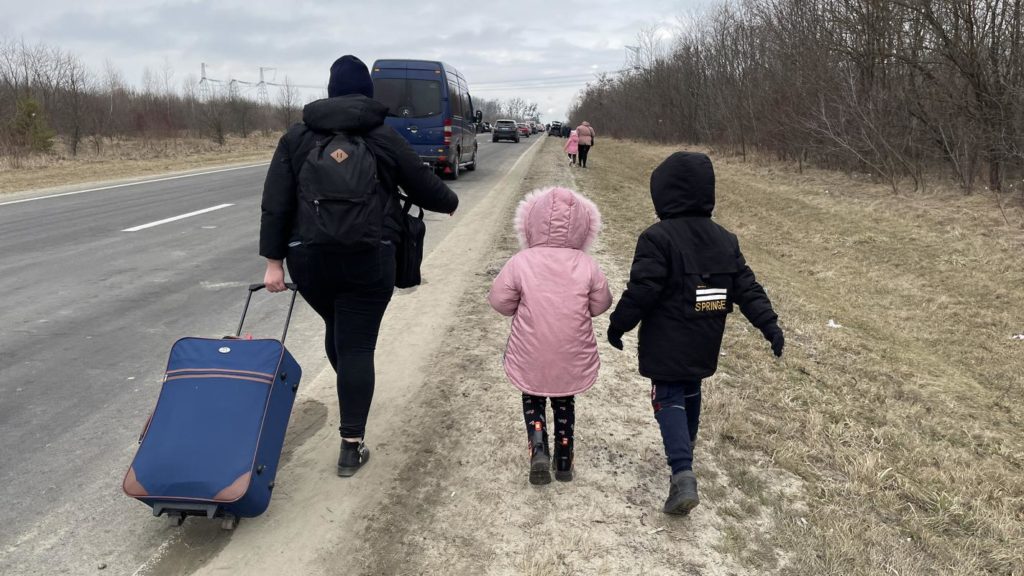
Victims of conflict face a double or triple whammy when trying to cope with mental health challenges. Even the most resilient may begin to experience symptoms of anxiety, anger and sleeplessness during wartime that last decades. And those with pre-existing conditions are forced to cope with the acute trauma provoked by experiences of death, destruction and displacement at the same time as any chronic condition – for which they may be unable to get medications or support.
The issue was the focus of a recent online event “No Peace of Mind” organized by the Global Health Center of Geneva’s Graduate Institute and the UK-based charity Beyond Conflict, in which experts with lived experience dealing with ongoing conflicts in Ukraine, Kashmir and the Palestinian West Bank and Gaza spoke about the myriad of challenges faced.
Mental health alongside physical care in emergency settings
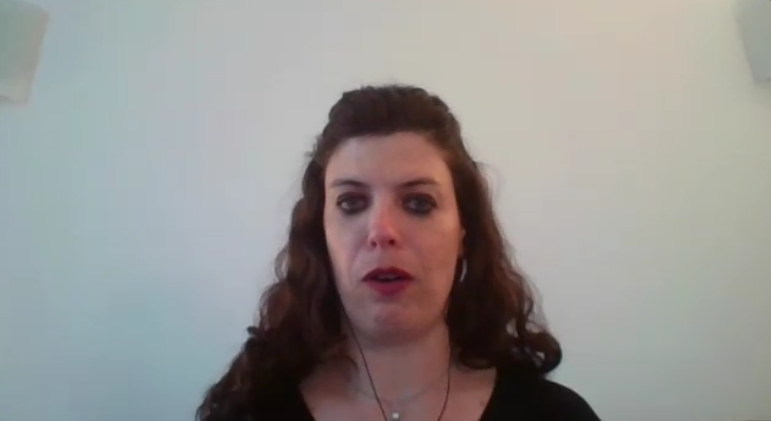
Panelists emphasized the need for health and humanitarian relief organizations to recognize the need to provide mental health support in to conflict-affected populations – along with other emergency health services.
In prolonged conflict settings, long-term investments in culturally sensitive and accessible care are important, they stressed. Building awareness about self-care as well as more training for family practioners in the identification and treatment of mental health conditions can help overcome the dearth of resources as well as building more resilient community services that also counter-balance the historical focus on hospital-based care.
“We cannot allow a lack of resources to be an excuse for neglecting the basic needs of people who are suffering,” said Mariana Duarte, a mental health advisor to Médecins Sans Frontières (MSF).
“Integrating mental health into emergency response requires collaboration among various sectors including health, social services, education and community organizations,” she stressed.
At the same time, she added, that the responsibility of health actors does not end with the provision of services. “We must also address the underlying cause of armed conflicts and work tirelessly to promote peace, justice, and reconciliation. Only by addressing the roots of conflict, can we hope to create a world where mental health is protected and valued.”
Addressing mental health after the conflict ends
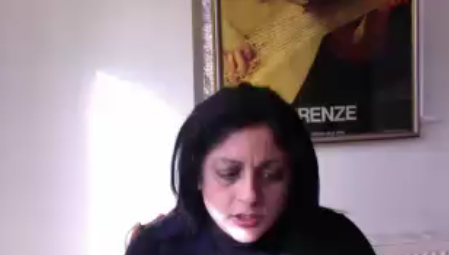
If war- related traumas are not resolved, then they continue to create illness long after the hostilities have ended, noted Edna Fernandes, the co-founder of the charity “Beyond Conflict”, and moderator of the session.
She helped found the organization after life-changing interactions with two refugees from Iraq who fled Islamic State in 2016. One, was a young woman that she met at an IDP conference in the United Kingdom who had escaped sex trafficking but remained “full of rage.”
“When I asked her privately what was the one thing that would make a real difference, she surprised me because she said ‘we simply need more psychiatry.’”
The second was an 10 year-old boy who had escaped ISIS and after three months in an IDP camp, barricaded himself into a room with two small children ages 2 and 3 – which he then hanged.
“So the 10-year-old was repeating the cycle of terror and violence that he had learned from ISIS,” she said. “Through these two refugees, we first learned about the lack of mental health support for victims of war and conflicts around the world.”
Since being founded in 2018, the charity has worked with Rohingya refugees from Myanmar living in Bangladesh; Ukrainian refugees, and since January, a project for Palestinians in the West Bank and for Israeli young people who were traumatized by the 7 October Hamas attack on the Nova Music Festival.
“In all cases, we support expert partner organizations on the ground who know the cultural landscape inside out”,” she said. “Yet despite growing awareness and an understanding of the long term cost of failure to address more related trauma, the huge demand for mental health support remains largely unmet.”
Psychiatric conditions exacerbated during acute crises
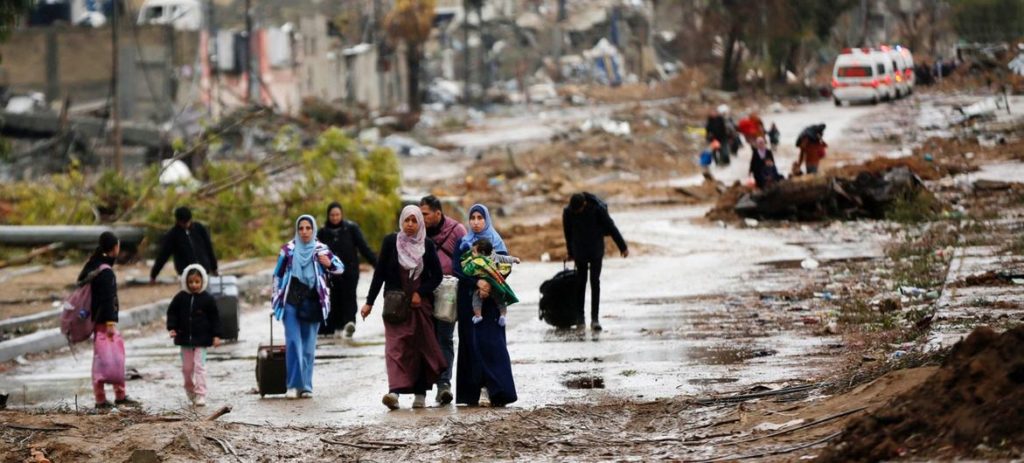
Speaking from their lived experience, expert panelists from Ukraine; Jammu and Kashmir, and the Palestinian West Bank, provided their insights into mental health trauma in three conflict-ridden parts of the world.
“Presently, the only psychiatric hospital in Gaza has been ravaged by war,” said Mohammad Marie, an assistant president at An-Najah’s College of Medicine, in the West Bank city of Nablus. He described the urgent challenges faced in an active conflict setting – where life-threatening threats to physical health create new mental health scars that add to those previously experienced.
“Psychiatric patients in Gaza are living without medication,” he declared.
“But in addition, children’s [limbs] are being amputated without anesthesia; women are undergoing cesarean sections.
“This catastrophe situation leads to death – or people live with mental health scars for the rest of their life,” he said adding that, effectively, “there is no mental health care in Gaza. There is no medication, especially psychiatric medication. In Gaza. In addition to that, there is no food, no clean water.”
And even among Palestinians in the West Bank, where Marie lives, the war has changed their lives as the Israeli military occupation around them tightens its grip.
“I live in Nablus, for example, and personally I have been unable to move outside of my city for the past six months. I feel suffocated, unable to travel,” he said.
In both the West Bank and Gaza, decades-long waves of conflict, along with the accompanying feelings of helplessness and hopelessness, have left people in an unending cycle of intergenerational trauma, he added.
“And each trauma is more difficult or more severe than in the past.”
When the bombs stop falling the real struggle of people starts

Sometimes it can feel very difficult to talk about mental health in the context of conflicts, added Saiba Varma,an associate professor of psychological and medical Anthropology at the University of California, San Diego.
“It makes you sometimes question why is this important given what people are going through? But I have to always remind myself that it’s what happens after the bombs stop falling. That’s when, in many ways, the real struggle of people starts.
“And as an anthropologist, when I’m thinking about the relationship between mental health and war and occupation.
In complex and ongoing long-term conflicts, the ‘war on the psyche’ persists even if bombs are not falling every day, she explains.
“It is a war that targets people’s perceptual reasoning, decision making and behavioral capacities. It is very explicitly a war that does not only target soldiers and combatants, but ordinary citizens.
“For example, in the region of Jammu and Kashmir, the Indian government does not see it as an ongoing occupation. It does not see it even as a war. It sees it as a place of terrorism – whereas when you talk to people from Jammu and Kashmir they will name this as a war, as an occupation.”
“So even the ways in which we name these conflicts are imbued with ambiguity. That, I think, is a sort of psychic assault on people’s ability to reason and make sense of their world. That’s where it really begins, in terms of the mental health challenges that are particular to Kashmir but certainly not unique.
“As we know a lot of the research on trauma and PTSD comes out of populations, who are refugees who have fled the place of violence, whereas what we see in a place like Kashmir, is that traumatized populations must continue to live in the traumatic environments. They don’t get to leave. And that produces a unique set of mental health challenges.”
“Among the vulnerable populations in Kashmir, as in other conflicts, we’re seeing very high rates of substance use in children and youth. In women, we’re seeing increased rates of self harm. And particularly what we’re seeing more recently are the ways in which political activists, journalists, medical professionals and others are being criminalized for speaking out and they’re actually called narrative terrorists by the Indian government. So that has a unique kind of set of mental health challenges as well.”
And care is either deliberately targeted or eroded over time due to the effects of militarization, she added. “In terms of, you know, who can access a hospital, what kinds of medications are available? Is there a curfew, is there a strike?”
Challenges faced by humanitarians
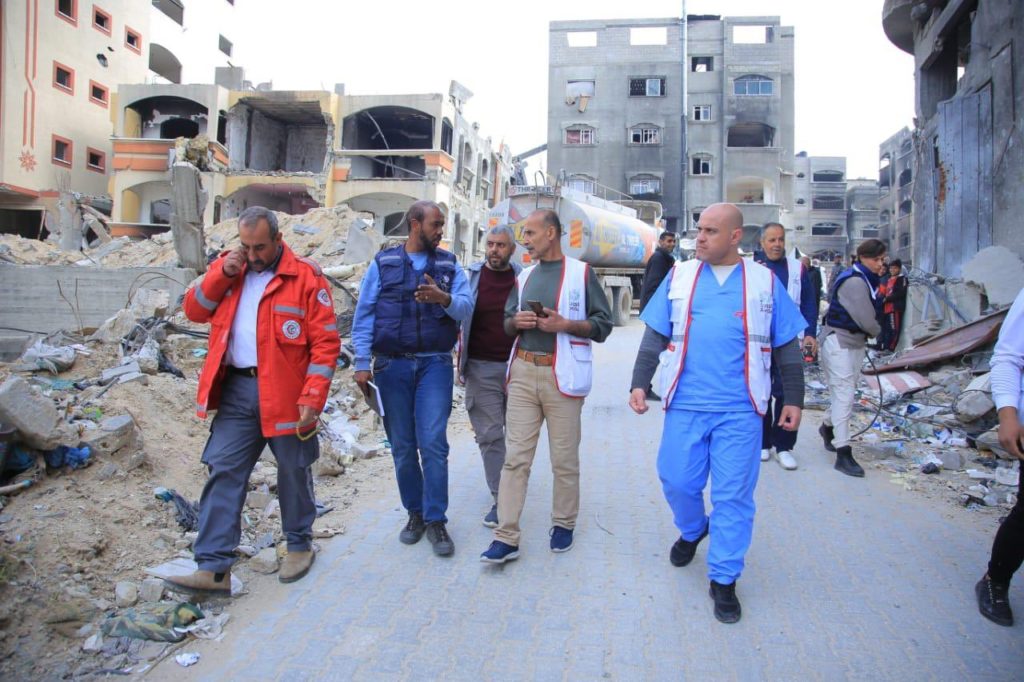
The complex of issues leaves humanitarian organizations with huge challenges – in terms of how critical they chose to be about the underlying political or conflict dynamics while also trying to gain access to conflict settings where help is most needed.
And even when services might be available, relief organizations must address stigma around getting care for mental health issues, Varma added.
“There’s a lot of apprehension people have towards particularly biomedical Western medical psychiatric care has to do with histories of abuse in psychiatric institutions. It was only in 2001 that the Indian Supreme Court banned the use of restraints in psychiatric hospitals. So that’s very recent, and people remember those histories and that contributes a lot to their apprehension and seeking care.
Finally, she said, humanitarian mental health care is inevitably limited in scope.
“It’s not always able to provide health and mental health in the way in which local populations understand it. And in the case of Kashmir as with many other places in the world, people define health much more broadly than just being about the absence of symptoms. For them health has a social dimension, moral, spiritual, psychological and political.
“I think the thing that I heard most often from people while I was doing my research was this idea that we will not be healthy until the conflict leaves us.”
At the same time, intervention strategies need to include more focus on the cultivation of positive survival skills, she said.
“I think we need a lot more focus on the positive aspects of how people living in these contexts survive. So some of the things that I heard from people in Kashmir were for example, patience, cultivating patience, forbearance, hospitality, these are kind of critical coping skills that I think need a lot more attention… So all of those dimensions will also require attention from humanitarian organization.”
Countering stigma in Ukraine

Ukraine, as well, also faces historical and cultural barriers to mental health care – with stigma persisting amidst a historical lack of resources, observed Dmytro Martsenkovsky, assistant professor at the Department of Psychiatry of Bohomolets National Medical University, Kyiv.
“Ukraine has inherited a Soviet-based type of mental health care, and it was very institutionalized,” he said.
So basically, if people needed mental health services, hospitals were almost the only place people could access support, he said.
But with civilians under heavy bombardment and confined to shelters, accessing hospitals became logistically more difficult – even as mental anxiety and related disorders grew exponentially – as more than 10 million people were displaced, while saw family members killed, or experienced torture and imprisonment under various waves of Russian occupation.
In addition, there is a lack of “mental health literacy” in Ukrainian society, with considerable stigma, he said.
“It has some historical roots, but also a lot of people are afraid because for them, seeking mental health services is showing that you’re weak, that you’re not able to cope with your conditions on your own.”
Countering that, Ukraine’s First Lady, Olena Zelenska, has championed a more open approach to mental health treatment, supported by a broad-based mass media campaign.
An online “How are You” platform has been developed that provides basic information on mental health and self-care techniques.
“And this can help people who are feeling anxious or fear to seek professional care, to receive at least basic interventions to try to cope with their conditions.”
Martsenkovsky is also working with the Ministry of Health to provide more education to family doctors on basic mental health interventions.
“And this is one of the core priorities because we had a lack of human resources even before the war,” but with the invasion most of the specialists, especially those who were women, were either displaced or left the country with their own children seeking safety and shelter.”
Recovery may take decades
Whether it’s Gaza, Ukraine or elsewhere, panelists all agreed that it typically takes “decades” for people to recover from the psychological trauma of war – particularly when the conflict also persists with no end in sight.
“We are talking about … creating the possibility to enjoy life again, to have proper sleep, to not wake up from nightmares, to work for the prosperity of families and communities and to have a stable belief in a safe future,” Martsenkovsky said. “Because the longer the conflicts go on, fewer and fewer people are able to see a future for themselves and their children. It becomes more difficult for them to cope with everyday challenges.
“I’m not talking about the challenges of war, but about conflicts in families, financial difficulties that all of us face at points in time. And this will affect those who are traumatized by war for many decades, and as Mohammad mentioned, sometimes for generations.”
Image Credits: © UNRWA/Ashraf Amra, People in Need, WHO , UNICEF/UN0599222/Moldovan.
Combat the infodemic in health information and support health policy reporting from the global South. Our growing network of journalists in Africa, Asia, Geneva and New York connect the dots between regional realities and the big global debates, with evidence-based, open access news and analysis. To make a personal or organisational contribution click here on PayPal.


